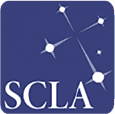Piracy, privacy and the Dallas Buyers Club
Piracy, privacy and the Dallas Buyers Club
If you have been reading the newspapers recently, you would be aware of the fanfare surrounding the recent decision in the Federal Court about the illegal downloading of the movie Dallas Buyers Club.
Although the decision has a touch of Hollywood excitement, it is probably too early to consider the decision as ground breaking or new.
Let’s break down what the decision involved and how it actually impacts household consumers.
Dallas Buyers Club LLC and Voltage Pictures LLC as the owners and copyright holders of the movie Dallas Buyers Club filed an application in the Federal Court for preliminary discovery against six internet service providers (“ISPs”) as respondents.
The purpose of this particular application was to ascertain the identity of particular internet account holders who had wrongly communicated the movie by illegally downloading and/or copying it, in breach of the Copyright Act.
The application was filed against the ISPs because they can identify the relevant account holders to each IP address from which the illegal sharing occurred. So in a way, it is an information gathering exercising for the sake of identifying prospective defendants.
Justice Perram ordered (among other things) the ISPs to disclose to the full names and addresses for the account holders; all 4,726 of them, to the Court.
This is where things got exciting and scary.
It got scary for certain account holders, who may have used a peer-to-peer file sharing networks, such as BitTorrent, to download and share Dallas Buyers Club, because their ISPs now have to provide their identity to the Court. Potentially this exposes those account holders to a prospective claim for damages against them by Dallas Buyers Club LLC and Voltage Pictures LLC for breaches of the Copyright Act.
It also got scary for account holders with shared internet connection because it may subject them to a speculative invoice from Dallas Buyers Club LLC and Voltage Pictures LLCs, for the illegal download, when the infringer was another user in the household or another WIFI user.
Justice Perram thought through these practical realities and placed restrictions on the disclosure by further ordering that the disclosure be to the Court for the purpose of being used by Dallas Buyers Club LLC and Voltage Pictures LLCs for recovering compensation for infringements. He also ordered that Dallas Buyers Club LLC and Voltage Pictures LLCs provide draft letters they intend to send to the account holders.
For some (really just lawyers), the orders are an indication of how the Court is willing to monitor speculative invoicing, which is the invoicing of the cost of an illegal or unpaid download to an identified account holder by Dallas Buyers Club LLC and Voltage Pictures LLCs. His Honour was cognisant of the potential misleading nature of speculative invoicing under the Australian Consumer Law. Although the Orders do not entirely cure the problem where the internet use is shared at this stage.
It is also an indication of the practical way the Court is willing to balance between the privacy obligations on the ISPs and the need to advance the protection of copyright holders’ rights, even though it was argued by the ISPs that it was not commercially viable for Dallas Buyers Club LLC and Voltage Pictures LLCs to pursue individuals account holders.
From a legal point of view, Justice Perram also affirmed the two decisions of Court of Appeal in Roads and Traffic Authority (NSW) v Australian National Car Parks Pty Ltd (2007) 47 MVR 502 and Roads and Traffic Authority of New South Wales v Care park Pty Ltd [2012] NSWCA 35 in applying the principle that, for the purpose of a preliminary discovery application, it is sufficient to seek information that would aid in the identification of prospective defendants not that it would identify the actual defendants. His Honour did not consider there was any material differences between the premise of the NSW Rules and the Federal Court Rules for such an application.
So is this new? At law, not really. Although the practical restrictions on disclosure and the proofing of the draft letters is a sensible way of balancing interests.
Is it ground breaking? For copyright holders and illegal downloaders, perhaps. Now more than ever it would appear that the Courts are willing to facilitate the rights of owners copyright, particularly in the internet piracy space.
The matter is listed for further orders on 21 April 2015. There are interesting times ahead, so stay tuned!
If you have any questions regarding copyright or questions about intellectual property infringement please contact Su-Ann Loh (Senior Associate, Dispute Resolution) or Peter North (Senior Associate, Business Law) on (03) 9629 9629.
Related Articles
Copyright © 2021 Lewis Holdway Lawyers. Website Design By LGT Digital






